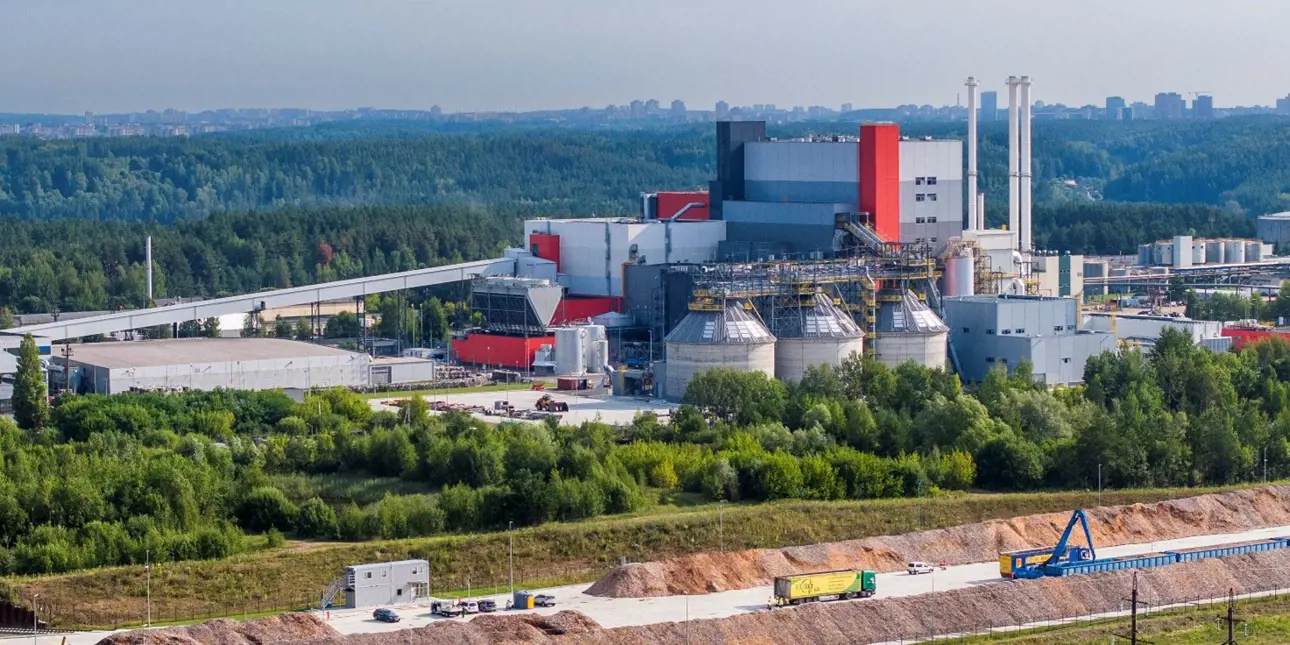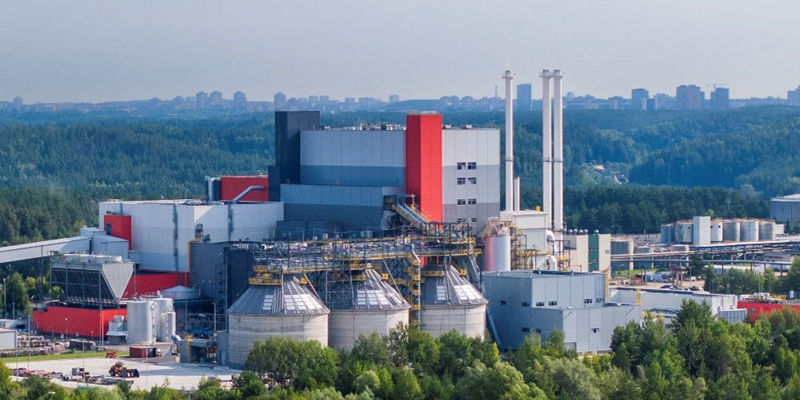Through hard times to success
Jun 26, 2024
Having encountered significant challenges during its construction, Vilnius Combined Heat and Power’s new biomass boiler unit is now in operation and can operate at higher loads than originally planned.

In 2022, Vilnius CHP found itself in the kind of tight spot no company wants to be in during a building project. The main contractor was unable to complete the biomass unit project, with 85 percent of the work finished. As it was crucial for the company to increase its heat and electricity generation capacity to meet the growing demand, a new contractor was needed as soon as possible to close the project.
“We chose Valmet to complete the construction of the biomass unit through a public procurement process. We paid a lot of attention to the price, lead times, and especially to the supplier’s experience, as it was a very complex project with a lot of challenges. Valmet’s offer suited the plant’s needs best when we considered the challenging task of restarting the stalled construction and ensuring smooth plant commissioning,” says Mantas Burokas, CEO at Vilnius CHP.
Our expectations of the work done by Valmet were met and were greatly exceeded during the commissioning phase.”
Vilnius CHP had started up a waste-to-energy unit in 2020. Through the extension, the target was also to generate energy in a new biomass unit with two CFB (circulating fluidized bed) boilers.
Valmet’s delivery scope included a technical assessment of the whole plant, as well as the completion of all remaining boiler design, procurement, installation, commissioning, and operator training, and flue gas cleaning and condensing systems.
A Valmet DNA Automation System for controlling the plant operations had been included in the former contractor’s delivery scope. During the commissioning phase, Valmet enhanced it to improve the boilers’ operation and performance and to make it easier to operate and protect them.
Open and transparent problem solving together
The task of completing a plant designed by another contractor was a tough one, especially as a lot of specifications and drawings were unavailable. Additionally, there were many new suppliers and subcontractors with whom Valmet had not previously worked, as well as new ways of doing things.

“We would like to thank the entire Valmet team for their professional and dedicated work on this project,” says Mantas Burokas, CEO at Vilnius CHP.
“Smooth cooperation between our teams allowed us to find common ground and harmonize our views on how to complete the project properly,” Burokas remarks. “A particularly positive aspect of our cooperation was solving problems openly and transparently. Having Valmet’s team on site was a very positive and rational decision that led to effectiveness.”
As the project had a tight deadline, effective project management and close cooperation between the Vilnius CHP organization and Valmet were a must. Day-to-day communication and interaction between the teams created a result-focused environment.
“Valmet has vast experience in similar projects. They solved our problems promptly and efficiently, significantly contributing to the project’s overall success. Valmet played a core role in the project and was engaged in active communication and planning,” Burokas adds. “During the commissioning phase, Valmet engaged high-level specialists with a wide range of expert knowledge and extensive experience. All in all, Valmet’s procurement, engineering, design, commissioning, and other expertise were hugely important. We would like to thank the entire Valmet team for their professional and dedicated work on this project.”
More capacity than planned
Vilnius CHP took over the plant in late March 2024 after Valmet had successfully conducted the test and commissioning phases. The power plant’s total electricity capacity now amounts to 90 megawatts (70 MW biomass-based), and the heating capacity amounts to roughly 240 MW (170 MW biomass-based). Its energy production can cover around 40 percent of the capital’s district heating demand and the electricity consumption of around 320,000 households per year.
The plant now operates with all its three boilers and two turbines based on the energy demand. Successful Public Service Obligation (PSO) tests resulted in an electricity capacity of 74.1 MW.

Vilnius CHP can cover around 40% of the capital’s district heating demand. The plant generates enough electricity per year to power around 320 thousand households.
“We can confidently say that our expectations of the work done by Valmet were met and were greatly exceeded during the commissioning phase. It’s the standard of work, high demand for quality, and work culture that make Valmet’s work exceptional,” Burokas states. “We’re excited to have finished the construction work and to have proceeded to the operational phase.”
To ensure smooth operation and high plant availability in the future as well, the company is currently negotiating a service agreement with Valmet. “We have confidence in Valmet, so it’s a wise decision to have a reliable partner.”
Valmet is also happy with the outcome of this extraordinary and challenging project. As Niina Ollikka, Director of Boiler Rebuilds and Conversions, Valmet, puts it: “We were happy to be able to support Vilnius CHP in their challenging situation and get the power plant up and running.”
Photos: Vilnius CHP
Text: Marjaana Lehtinen


